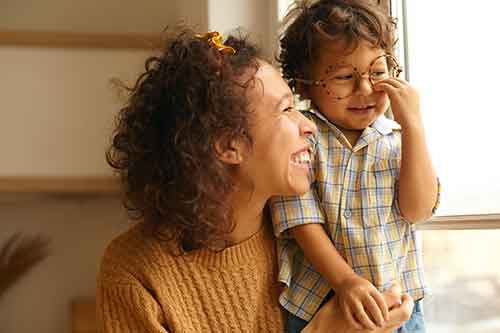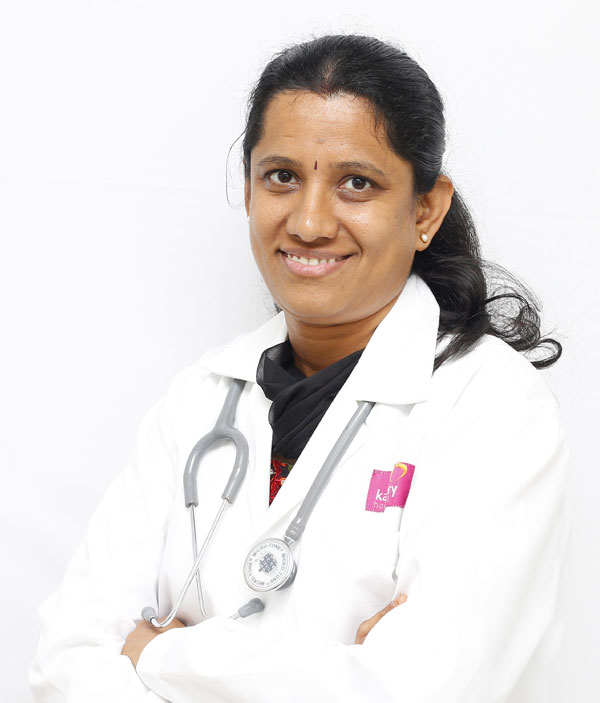Age and Fertility
Introduction
Infertility is the inability of a couple to achieve pregnancy after one year of regular intercourse. Fertility is unpredictable but declines with age for both men and women. We are realizing that some couples are having their first baby at an older age. Older women are at a greater risk of miscarriage and other medical complications. This has huge implications for patients, obstetricians, gynaecologists and the society at large.

The ‘biological clock’ keeps ticking.
Older First-Time Mothers
More women than ever before are starting families at the advanced maternal age of over 35 years. There has been a significant population shift in the last 30 years towards older mothers. The age of marriage has gone up and even after 2-3 years of marriage, some are not keen on starting a family due to various reasons. Some may not be able to get pregnant at all. Despite technological advances in assisted conception, there is no major improvement in background fertility with age. Average age of menopause remains static.
The Biological Problem – Reproductive Ageing
It is a continuous process that begins prior to birth and extends through the menopausal transition. A woman has about 7 million oocytes (eggs – female gametes) when she is in her mother’s womb. It reduces to one million at birth and from menarche (first period) to menopause (last period), about 400-500 of them are released during ovulation. The quality and quantity of the eggs decline with age. So, it is prudent to achieve healthy pregnancy/pregnancies and babies before 35 years.
The primary mechanism is depletion of the ovarian pool of non-growing follicles.
Peak fertility occurs in the mid-twenties after which there is a general decline in fertility with a steep decline beginning after age 35. (The present-day couples feel it is too early to get married and start a family as they feel they are “not settled”.)
This observed decline in fertility occurs in-spite of normal hormone secretion from the ovaries of ‘older’ reproductive-aged women, which is maintained until 3–4 years prior to menopause. Compared with other major organ systems, the human female reproductive system ages to the point of failure at a relatively young age (average 51 years).
Menopause is an easily recognized end-point of the woman’s reproductive lifespan.
Is ART (Assisted Reproductive Technology) the Solution?
The seemingly miraculous nature of assisted reproductive technology (ART) as a ‘cure-all ’that can even produce postmenopausal pregnancy has been associated with a corresponding increase in infertility.
Pregnancy Complications in Older Women
- Miscarriage and ectopic pregnancy
- Chromosomal anomaly
- Birth defects
- Multiple pregnancy – natural and assisted
- Hypertension and diabetes – before, during and after pregnancy and its effects on the mother and baby
The Grandmother Hypothesis
There is an evolutionary view that menopause is a biological safety barrier, protecting older women against pregnancy when the risks of childbearing are higher, and enabling post-reproductive women to support younger kin (future generations).
Men Are Not Spared!!!!!
Men also suffer the biological phenomenon of reproductive ageing. Men start producing mature sperm at puberty and this continues throughout life. While still remaining within World Health Organization guidelines for ‘normal’ semen analysis, there is a clear decline in motility, morphology and volume with age.
Ageing is associated with decreasing androgen levels known as ANDROPAUSE with decreased sexual activity and decline in testicular function and semen quality (volume, motility and morphology).
Social Impact – The Generation Gap
The impact of late childbirth and childlessness have been studied across many countries. Both men and women may develop metabolic problems and health issues after 40 years when their children are very young and not independent. This stresses both their physical and mental health.
As parental age may play an important role in children’s lives, we are convinced that people should also be aware of children’s perspectives before intentionally or non-intentionally delaying parenthood. Studies reveal that children showed a preference for having younger parents (consistent with the optimal biological age period for childbearing).
Stressed Parents – Radiates to Children, Reflects on Their Upbringing

Involuntary childlessness will be all the more distressing, given that a chosen life path has been blocked. Childless people face support deficits towards the end of life.
The Indian Scenario – Points to Ponder
- Differences Between Rural and Urban Areas – Age of marriage is earlier in rural areas and tend to seek treatment earlier.
- Literacy of both female and male
- Peer, family and social pressure
- Access to health care
- Economic Issues for Treatment – The Coin Problem
The NEW ART Bill (Regulation) Act 2021 has stated that fertility treatment can be considered for women up to 50 years and men up to 55 years.
Take Home Message
Most secure age for childbearing remains 21–35 years. A realistic message would be that below the age of 30, a woman is likely to have a baby naturally or from ART and over 40 the chances are remote.
IVF cannot make up for the delay and physiological decline in the quality of gametes.
Kindly Note!!!
Mixed media messages about fertility or assisted techniques may also be partially responsible for exacerbating the delay in starting a family, ‘sensationalising’ breakthroughs and giving women a false sense of security or, alternatively, a false sense of alarm and anxiety.
Low fertility does not, of course, mean no fertility.
Our mission is to create public awareness about FERTILITY AND CONTRACEPTION (balancing the two ends of a spectrum) which needs to be put into perspective with clear information on planning a family and age-related reproductive risk.

Dr Karpagambal Sairam
Consultant Obstetrician, Gynaecologist and Fertility Specialist
Kauvery Hospital, Chennai

